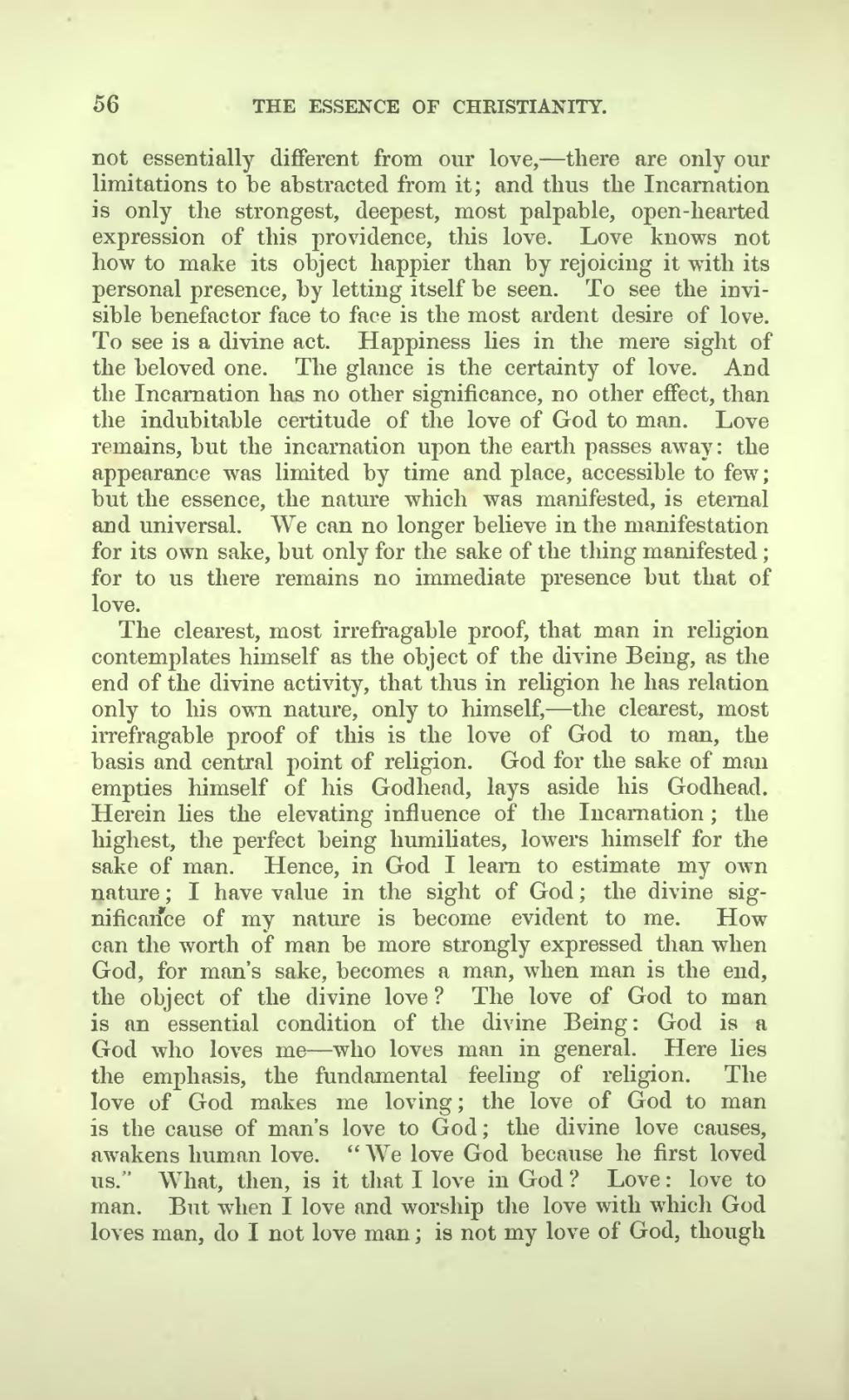not essentially different from our love,—there are only our limitations to be abstracted from it; and thus the Incarnation is only the strongest, deepest, most palpable, open-hearted expression of this providence, this love. Love knows not how to make its object happier than by rejoicing it with its personal presence, by letting itself be seen. To see the invisible benefactor face to face is the most ardent desire of love. To see is a divine act. Happiness lies in the mere sight of the beloved one. The glance is the certainty of love. And the Incarnation has no other significance, no other effect, than the indubitable certitude of the love of God to man. Love remains, but the incarnation upon the earth passes away: the appearance was limited by time and place, accessible to few; but the essence, the nature which was manifested, is eternal and universal. We can no longer believe in the manifestation for its own sake, but only for the sake of the thing manifested; for to us there remains no immediate presence but that of love.
The clearest, most irrefragable proof, that man in religion contemplates himself as the object of the Divine Being, as the end of the divine activity, that thus in religion he has relation only to his own nature, only to himself,—the clearest, most irrefragable proof of this is the love of God to man, the basis and central point of religion. God for the sake of man empties himself of his Godhead, lays aside his Godhead. Herein lies the elevating influence of the Incarnation; the highest, the perfect being humiliates, lowers himself for the sake of man. Hence, in God I learn to estimate my own nature; I have value in the sight of God; the divine significance of my nature is become evident to me. How can the worth of man be more strongly expressed than when God, for man’s sake, becomes a man, when man is the end, the object of the divine love? The love of God to man is an essential condition of the Divine Being: God is a God who loves me—who loves man in general. Here lies the emphasis, the fundamental feeling of religion. The love of God makes me loving; the love of God to man is the cause of man’s love to God; the divine love causes, awakens human love. “We love God because he first loved us.” What, then, is it that I love in God? Love: love to man. But when I love and worship the love with which God loves man, do I not love man; is not my love of God, though
